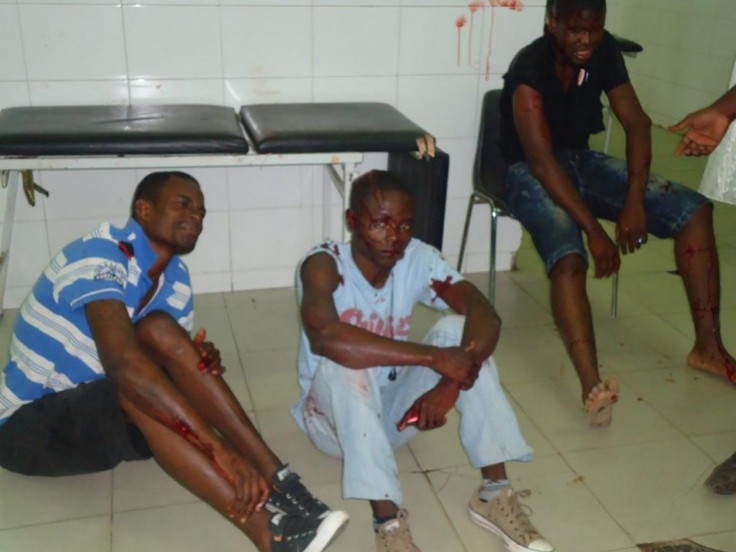Angola: The Bloody 'Democracy' Of An Oil Republic

As soon as the door opened, 15 men -- armed with pistols, machetes and iron rods -- burst into the house and began beating the young Angolan musicians and activists who were known for protesting government corruption and the violent suppression of political dissent.
Ten people in all were gathered at the home of popular hip hop artist Carbono Casimiro in the capital Luanda Tuesday evening, though Casimiro himself was not there at the time of the attack.
The armed thugs, suspected to be part of a pro-government militia, held the young men at gunpoint as they beat them with metal bars, fracturing skulls and opening up gashes in their flesh before taking off with computers and equipment the victims had been using to broadcast an anti-government Internet radio program and run an activist website called Central 7311.
It was obvious that they didn't want to kill us, they just wanted to scare us and put the fear into our hearts so that we stop doing our democratic actions and activist actions, one of them, Kady Mixinge, told the BBC.
There is a lot corruption in Angola, a lot of poverty, so we express our views against these kinds of things and the regime does not like this. They just attack us because our views, because of our ideals, that's it, he added.
Angola is Africa's second largest producer of oil after Nigeria, exporting nearly 1.7 million barrels a day to energy-hungry countries like the U.S. and China. The industry generates more than $45 billion a year in revenue, and yet Angola is one of the most economically inequitable societies in the world with a per capita GDP of just under $4,500, according to OPEC.
The Angolan government, led by reformed socialist strongman President Jose Eduardo dos Santos since 1979, has recently touted its oil wealth, economic growth and social stability to attract foreign investment, but avoids the topic of political repression and glaring economic disparities.
Rights organizations like Amnesty International and Human Rights Watch have criticized the government's use of violence to silence critics, exemplified by the recent attack on the 10 activists in Luanda.
This brutal beating highlights the ongoing threat of violence that anyone speaking up for free speech in Angola faces, Muluka-Anne Miti, Amnesty International's Angola researcher, said in a statement.
The Angolan authorities must protect the rights of this group and others to freedom of association and assembly. They need to take immediate steps to protect these freedoms by ensuring that an independent investigation is carried out and those responsible are brought to justice.
The reality, however, is that the government casts a blind eye to such attacks, while denying any connection to them.
Angola's major trading partners don't seem too worried about human rights abuses either. In 2010, the U.S. imported nearly a quarter of Angola's crude oil, though it was far outspent by China, which took in 45 percent, according to the U.S. Energy Information Administration.
Presidential elections are set for late summer, and the suppression of anti-government speech is only likely to increase. Dos Santos, at 69, may or may not choose to run again, but what is certain is that the regime he has installed will continue to oppress the Angolan people with the financial backing of its trading partners.
As for the young artists and activists who were brutally beaten by pro-government thugs, they will continue their calls for a true democracy. It is only unfortunate that it should be with the blood of their veins.
© Copyright IBTimes 2025. All rights reserved.





















